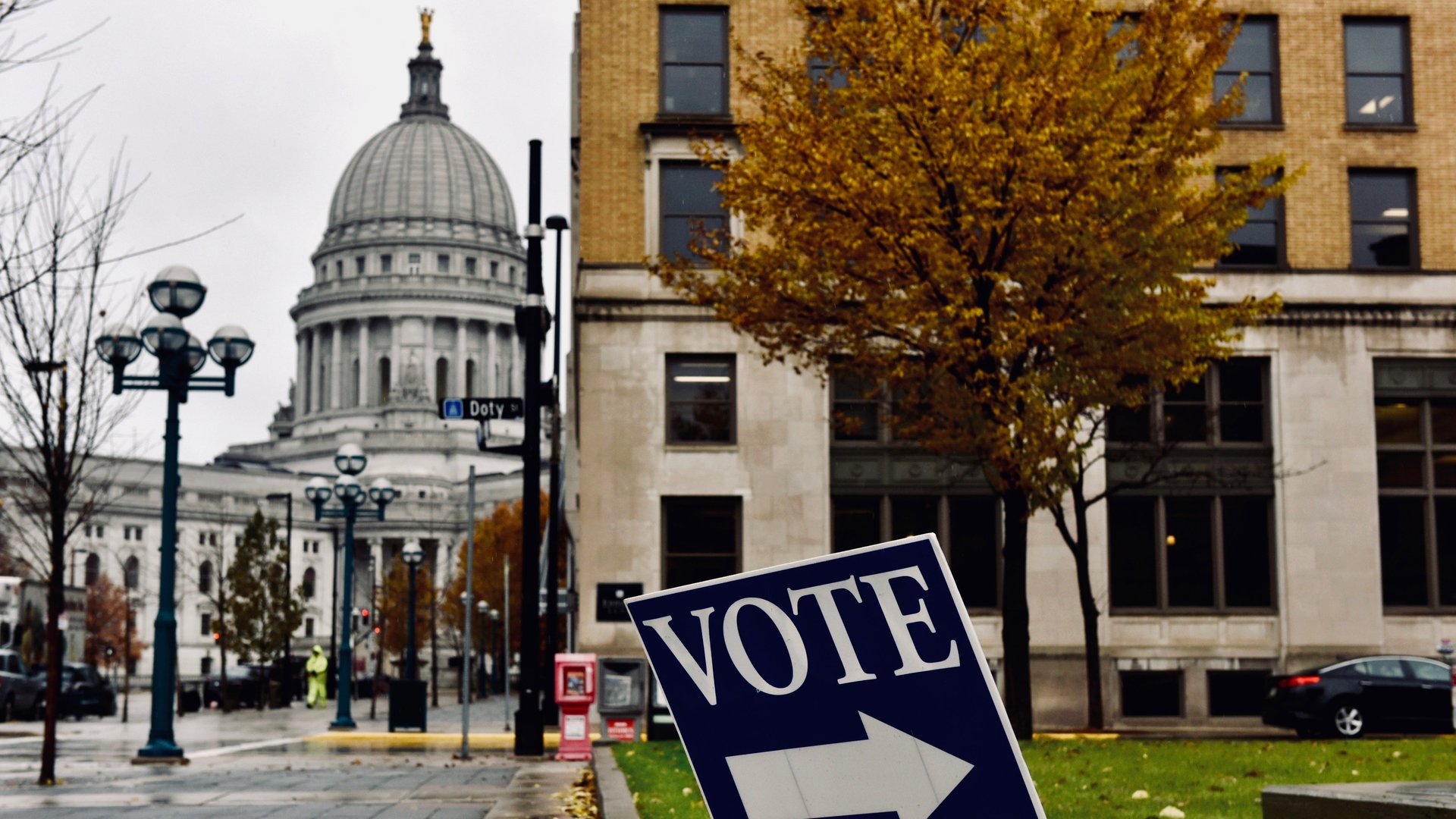The US Supreme Court is handling its first emergency pandemic matter—it’s about elections
The US Supreme Court justices did not have a relaxing weekend. On Saturday afternoon, the Republican National Committee (RNC) filed a request for an emergency ruling on a case about Wisconsin’s April 7 elections, with voters casting ballots in the presidential primary and general elections.


The US Supreme Court justices did not have a relaxing weekend. On Saturday afternoon, the Republican National Committee (RNC) filed a request for an emergency ruling on a case about Wisconsin’s April 7 elections, with voters casting ballots in the presidential primary and general elections.
Some other states have delayed voting, postponing the presidential primaries while the coronavirus rages, but Wisconsinites are also voting for several local offices with terms beginning on April 20, making the election especially pressing.
The RNC wants the high court to stay a portion of a lower court injunction that extends the time for receiving and counting mail-in ballots to April 13, granted amid the coronavirus crisis. It’s asking that any ballot postmarked after election day not be counted.
“The order below permits any absentee voter to cast their ballot up to six days after election day,” the RNC complained. “[T]his change to Wisconsin election law was imposed by the district court five days before the election.”
States have a legitimate interest in imposing voting deadlines to permit the orderly administration of their elections and to protect election integrity, the RNC says. In a time of unprecedented confusion caused by the pandemic, last-minute rule changes will only lead to more chaos, it claims.
The RNC is fine with allowing ballots postmarked by the original deadline to be counted if they arrive by April 13 but not okay with counting any later-dated mail-in votes. But the Democratic National Committee (DNC) pointed out in its brief that Republicans first resisted any compromise with the current reality.
The RNC initially argued that the state has an “overwhelming” interest in ensuring all mail-in ballots be in by election day, wanting to proceed as if the pandemic wasn’t happening and that locals weren’t staying home in the interest of public health. Perhaps realizing that this position was unreasonable, the RNC requested that the Supreme Court simply block the portion of the lower court order that allows voters who don’t mail in their ballots by April 7 to be counted.
The DNC wants the late-game rule change to stay in place to ensure that voters stay home, instead of going to polling locations, basically arguing that extraordinary times call for extraordinary measures. It asked the high court to decline to review the stay and leave the lower court order in place. That would allow postal votes to get counted even if mail is slowed due to the pandemic, and even if their ballots are cast after April 7 but before the 13th.
It wrote that the RNC is ignoring “the plight of voters who timely requested their absentee ballots but will not receive those ballots until after April 7,” adding, that “their claim that the injunction will ‘cast a cloud of illegitimacy over the entire election’ is contrived and demonstrably false.” Thousands of voters will be disenfranchised if the Supreme Court grants the RNC’s request, according to the DNC.
The pandemic has cast a pall over the court’s docket. The justices have had to cancel oral arguments in March and April, which means delaying decisions in important matters with implications for the 2020 US presidential elections, including cases about US president Donald Trump’s financial records and the duties of electoral college voters. Last week, the high court agreed to receive additional briefing on a case about the Trump administration’s decision to halt a program known as Deferred Action for Childhood Arrivals, or DACA, which grants work authorization to certain adult children of undocumented immigrants, including 27,000 healthcare workers who are critical to the national fight to stop the pandemic’s continued spread, representatives for the DACA recipients told Quartz.
The Wisconsin matter is the first Covid-19 case to make it to the high court but it surely won’t be the last. A challenge to Texas’s recent decision to deem abortions elective, making it impossible for women in the state to get family planning services while the pandemic rages, is expected to soon reach the justices, too. And with a slew of new and arguably unconstitutional situations arising due to the crisis, including the suspension of the right to a speedy trial in some criminal cases, it’s likely the court will be dealing with the coronavirus long after the worst of the pandemic passes, assuming that happens.